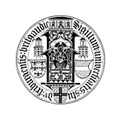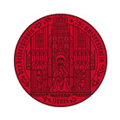Universities in Germany

Albert-Ludwigs-Universität Freiburg

Bauhaus-Universität Weimar

Bergische Universität Wuppertal

Bucerius/WHU Master of Law and Business Program

Carl von Ossietzky University Oldenburg

CBS International Business School

Christian-Albrechts-Universität zu Kiel

ESCP Europe, Campus Berlin

ESMOD Berlin International University for Fashion

EU Business School Munich

FU-BEST (Berlin European Studies)

Fulda University of Applied Sciences

Hessen International Summer Universities (ISU)

ISNM International School of New Media at the University of Luebeck

Ludwig-Maximilians-Universität Munich

Northern Institute of Technology

Rheinisch Westfalische Technische Hochschule Aachen (RWTH)

Rheinische Friedrich-Wilhelms-Universität Bonn

Schiller International University, Heidelberg

Technische Universität München (TUM)

Universität Duisburg-Essen

Universität Heidelberg

University of Bremen

University of Oldenburg

University of Tubingen

WHU Koblenz
Universities in Germany by City:
AachenBerlinBonnBremenCologneDuisburgFrankfurtFreiburgFuldaHamburgHannoverHeidelbergKasselKielKoblenzKonstanzLeipzigLuebeckMannheimMunichMünsterOldenburgPaderbornPotsdamRegensburgSaarbrückenStuttgartTrierTuebingenUlmVallendarWeimarWiesbadenWuppertalAbout universities in Germany
Higher education and research in the Federal Republic of Germany is overseen and planned by the Federal Ministry of Education and Research, and administered at the state level by each of the 16 state governments in the country. In total, there are over 300 institutions of higher learning scattered throughout Germany, a combination of public or state-run universities and private institutions that are recognized by the state.
Schools of higher education in Germany are divided into three categories: Universities, Universities of Applied sciences, and Colleges of Film and Music.
Universities in Germany
Like in most developed countries, the universities in Germany offer a wide array of programs at the undergraduate, graduate and post-graduate level. Most of these universities are comprehensive, meaning they offer programs across a broad spectrum of subject categories, including the sciences, social sciences, health sciences, arts and humanities, and engineering and technology. These universities also host the majority of the country’s many research facilities, and they are the only institutions that offer advanced specialty programs in fields such as medicine, law and education. Other universities in Germany focus solely on technical education, with programs in engineering, electronics and the computer sciences, among others.
Universities of Applied Sciences
The Universities of Applied Sciences in Germany, known locally as Fachhochschulens, are designed to provide students with a practical education across all of the science-based fields; an education they hope will translate to a future career choice. Unlike universities, where the prime focus is on academia and research, the Universities of Applied Sciences offer a combination of classroom-study and hands-on training in a number of science, business and technology-related fields, including computer programming, business management, and information technology, just to name a few. Currently there are over 200 Universities of Applied Sciences in Germany, making them the most prevalent institutions in terms of number.
Colleges of Film and Music
There are just over 50 Colleges of Art, Film and Music across Germany, providing education to students in a number of fine arts and performing arts-based fields of study. As the admission standards at these esteemed colleges are extremely rigid, students who wish to attend must demonstrate excellence in their particular field of study prior to being considered for admission. These schools offer programs in fields such as drama; painting and sculpture; vocal and instrumental music; interior design; and film.
Credit and Degree Structure at German Universities
All higher education institutions in Germany are now set up in accordance with the Bologna Declaration of the late 1990s, an educational reform measure aimed at standardizing the credit and degree structure at universities throughout the European Union as a way to facilitate student transfer between those EU countries. Under this reform, a typical academic year is worth 60 credits or ECTS, and the degree structure is as follows:
- Bachelor Degree. There are two types of Bachelor Degrees in Germany: the academic bachelor degree and the professional bachelor degree. The former normally takes 3 years or 180 credits to complete, and while no formal degree is awarded after this stage, it does make students eligible to enter the Master’s degree program. The professional bachelor degree is normally reserved for students pursuing a professional program of some type. This type of degree normally spans 4 years in duration or 240 credits, after which students are awarded a formal degree that qualifies them to enter the workforce in their chosen field of study.
- Master’s Degree. Students who successfully complete their academic bachelor degree are eligible to enroll in a Master’s Degree program in the same or related field. The majority of these programs span two additional years in duration or 120 ECTS. Towards the conclusion of their Master’s Degree program, students are required to develop and defend a thesis prior to graduation. Since making the switch to the new credit and degree structure, an increasing number of German students are now electing to pursue a Master’s Degree.
- Doctorate Degree. Exceptional students who want to continue their education after earning their Master’s Degree are welcome to apply to one of the many Doctorate or PhD-level programs offered at German universities. Most of these programs require students to take and pass an entrance examination before being considered for admission. If admitted, students will focus on advanced subject matter in their field of study and engage in original research projects alongside faculty. Students are also required to complete a dissertation and defend that paper to a panel of faculty members.
Admission into German Universities and Fees
The admission requirements for German universities and colleges vary somewhat depending on the institution. In many cases, students can gain entry by completing their secondary school (gymnasium) certification, a type of exit examination known locally as the Abitur. Other students can use their vocational education certificate of completion, known as the Fachabitur. Students who possess neither of these certifications will be required to take and pass a university entrance examination called the Begabtenprüfung; a test which measures a student’s proficiency in areas such as German, mathematics, and composition.
In all but five of Germany’s 16 states, tuition is free of cost at all state-run universities for all German citizens, while the universities in the remaining states charge a modest tuition fee. In every university, students are required to pay for things such as books, examinations and certain student services. Private universities have varying tuition fees, and unlike the public institutions they do offer scholarships for high-performing students.




